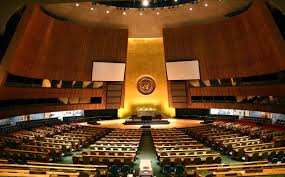International relations is a diverse field that allows you to investigate the complexities of relationships between different countries and apply this understanding to the world of work
Job options
Jobs directly related to your degree include:
- Civil Service fast streamer
- Diplomatic service officer
- Government social research officer
- Intelligence analyst
- International aid/development worker
- Policy officer
- Political risk analyst
- Public affairs consultant
Jobs where your degree would be useful include;
- Armed Forces operational officer
- Border Force officer
- Broadcast journalist
- External auditor
- Higher education lecturer
- Risk manager
- Solicitor
Work experience
Languages are key for a number of roles, so gaining work experience abroad, or other experience that allows you to develop language skills, can be of great benefit.
Working for a charity or non-governmental organisation (NGO) is another popular area of work and these can be good areas for volunteering or paid work experience.
If you’re interested in using your degree to work in the media, try writing for your university newspaper, blogging or writing for an online publication. For careers in other areas, such as teaching, business or law, you'll also need relevant experience.
Typical employers
International relations graduates can work in a range of career areas in the commercial, public and charity sectors. Typical employers include:
- banks
- charities
- IGOs, such as the UN, UNICEF and The World Bank
- international businesses
- law firms
- local and national government
- media companies
- NGOs, such as Oxfam, Greenpeace and Médecins Sans Frontières (MSF).
If you want to use your degree directly, consider roles with government departments such as the Department for International Trade and the Foreign & Commonwealth Office.
Skills for your CV
By studying for a degree in international relations you'll learn about the relationship between nations and how they connect in the world. You'll examine how the individual culture of a nation and its politics, economics, governance, law and security impacts these relationships.
You'll also gain skills in:
- effective verbal and written communication - including an ability to translate complex ideas to a wide audience
- gathering, organising and presenting information and data from a variety of sources
- critically analysing information in order to form an argument and find possible solutions to problems or issues
- developing intercultural and global awareness, which is of value in a global job market
- working with others to achieve common goals through group work, group projects and group presentations
- time management and independent study skills, as well as an ability to reflect on your learning, and ethical considerations when using and presenting information
- using technology to research and present information and data.








